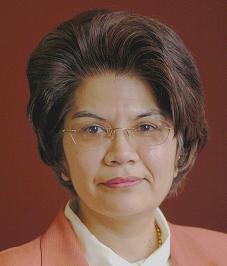Guest Editor: Edward Mooney, Syracuse University
Editor: Tazim R. Kassam, Syracuse University
 Tazim R. Kassam, Spotlight on Teaching Editor Tazim R. Kassam, Spotlight on Teaching Editor
Describing a sad but true fact, Tom F. Driver frankly notes, “In academia you don’t get many brownie points for loving to teach” (RSN May 2005:16). Yet, as is evident from this issue, even for those who have attained academic eminence through their research, at the end of the day, teaching elicits great love, attention and generosity.
In his special report, Scholarship Reconsidered: Priorities of the Professoriate — as relevant today as it was over a decade ago — Ernest L. Boyer calls for the American academy to enlarge its perspective of what it means to be a scholar by recognizing the diverse roles that faculty juggle to sustain the creative and critical enterprise of learning and education (Carnegie Report: 1990). The status of “scholar” in many societies has derived first and foremost from the capacity to teach — an expressive activity not merely of transmission of knowledge, but through its unrelenting and unending pursuit, of personal and societal transformation and renewal.
It is not a question I get asked much these days, but when I first interviewed for jobs I was regularly asked what drew me to the study of religion. Naturally, I talked about the important role of religions in shaping human history; and described my passion for the aesthetic, poetic and philosophical manifestations of religious life. And then the down-to-earth truth: two professors, in particular, at McGill University — Katherine Young and Charles Adams. The magic of the classroom, the stunning encounter of intellect and passion for a subject eloquently, expertly, and generously shared, the casual common room conversations, the watchful encouragement — all these meant more to me in those years marked by curiosity and experimentation then is possible to describe.
In his article, “Moments for Transformation: The Process of Teaching and Learning,” Jeffrey Soleau vividly captures the transformative impact that his philosophy professor had upon him: “Sitting in his class was akin to experiencing a meteor shower...In retrospect, I would describe what happened in this two-semester course as an ontological disclosure...” (JAAR 65/4:812).
Those entering a life in academe may thus take heart that while the challenges of an academic career are intense, as many of us know from our own experience, the influence, love and admiration of great teachers persist well beyond the hours when they directly quickened our minds and hearts, and stoked them with the fires of knowledge. Henry Adams aptly said: “A teacher affects eternity.” Teachers can never tell when or where their influence stops.
The idea for this issue of Spotlight was conceived serendipitously one afternoon over coffee as my colleague, Professor Edward Mooney, mused about what a life of teaching and scholarship had meant to him. Wouldn’t it be fascinating, he said wistfully, to hear the thoughts of other scholars in religion looking back on their careers as teachers, tracing their intellectual biography, reflecting on what moved them to teach, on how changes in the world affected their classrooms, on the ways that their writing had intersected with their teaching, and what they saw in the future for teachers entering the field?
Seizing the moment, I promptly invited Ed to guest edit Spotlight. Fortunately, he welcomed the prospect of putting these questions to the eminent scholars of religion who graciously agreed to be interviewed for this issue. Through the informal style and flow of ideas that dialogue makes possible, Ed’s thoughtfully conceived conversations capture a sense of the intellectual passions, ethical commitments, and delight in learning that nourish an academic vocation capaciously conceived.
|

